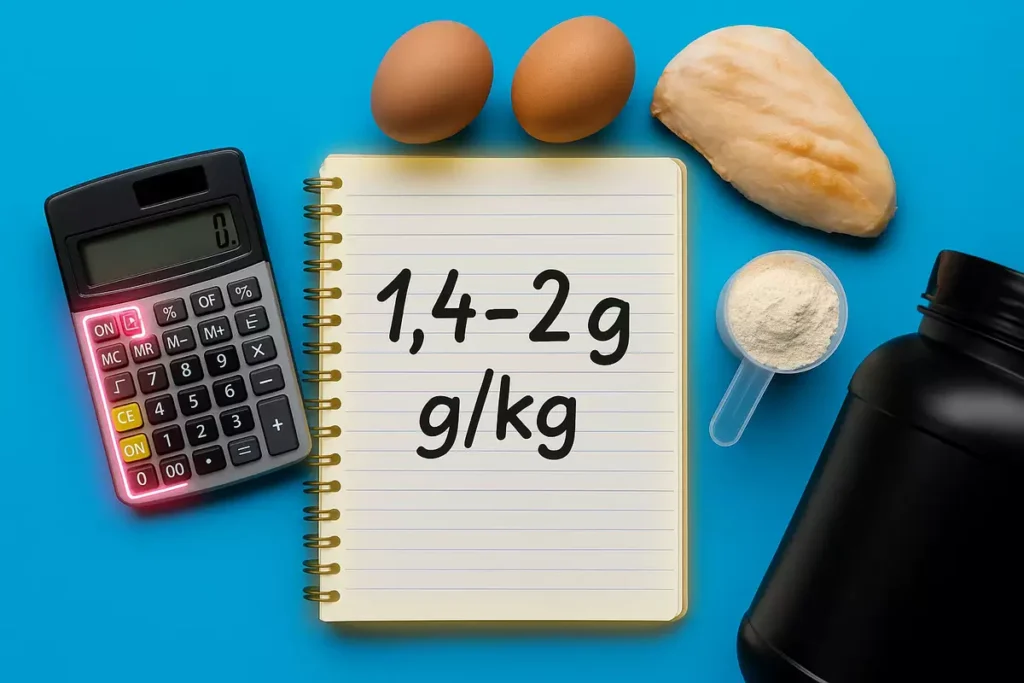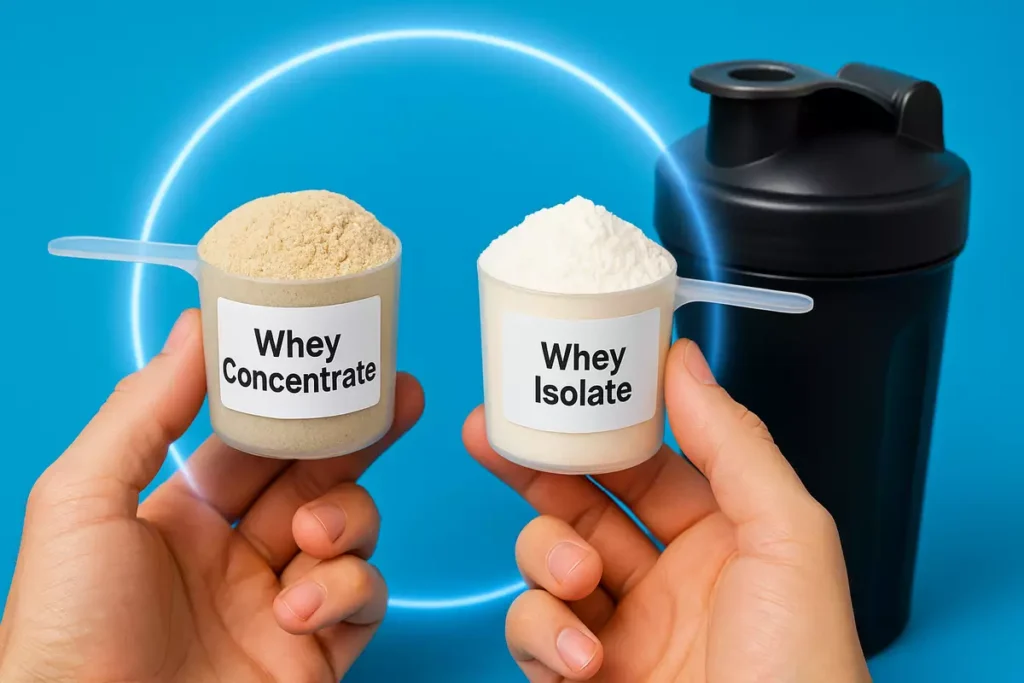Struggling to figure out how much whey protein you actually need? You’re not alone.
Whether you want to build lean muscle, burn fat, or just recover faster, getting your dosage right is key—especially if you weigh 70 kg.
In this guide, you’ll learn exactly how many scoops of whey you need per day, when to take it, and how to avoid common mistakes that waste your gains.
Let’s break it down with real-world advice from a fitness coach who’s been there.
Table of contents
How Much Whey Protein Does a 70 kg Male Need?
Let’s cut straight to the point: if you weigh 70 kg and you’re serious about building muscle or preserving it while cutting, your daily protein target should be around 98–140 grams. That’s roughly 1.4–2 grams per kilogram of body weight, depending on your training intensity and goals.
Now, does all of that need to come from whey? Not at all.
If you’re getting most of your protein from meals—like chicken, eggs, fish, or legumes—you’ll probably only need 1 to 2 scoops of whey per day. That’s about 25 to 50 grams of whey protein powder, which typically delivers 20 to 40 grams of pure protein.
In my own routine, I stick to 1 scoop post-workout, and sometimes add another scoop later in the day if my meals have been light. This keeps things simple, especially if I’m training during a cut or while doing intermittent fasting (see Whey Protein + Intermittent Fasting Guide).
Calculating Your Ideal Daily Protein Intake

Your target protein intake should match your training phase:
- For bulking: Aim for 2g/kg (around 140g per day)
- For cutting or maintenance: Stay around 1.4–1.8g/kg (about 98–126g)
I once had a 70 kg client, Daniel from Germany, who trained 5 days a week but didn’t get enough protein from food. We added 2 scoops of whey daily, split between post-workout and an afternoon shake.
In just 6 weeks, he gained 2 kg of lean muscle, and improved all his lifts. His routine also included a whey and creatine stack (learn more about stacking here) which made a noticeable difference in recovery and strength.
If you’re new to tracking macros, start with this formula and adjust based on how you feel, your recovery, and your gym performance.
Best Times to Take Whey Protein
Timing matters, especially if you want faster recovery or are training on a tight schedule.
- Post-workout: This is the gold standard. Your muscles are hungry, and fast-digesting whey delivers amino acids right when they’re needed.
- Morning: Great if you’re on the go and need a quick protein hit.
- Between meals: Ideal for keeping muscle protein synthesis active.
- Before bed: If you don’t have casein, whey still works better than going to sleep protein-depleted.
Personally, I always take whey immediately after training. On rest days, I shift it to mid-morning or early evening depending on my meal timing.
For some clients who skip meals or are always on the move, whey protein works great as a meal replacement. Just make sure to balance it with fats and carbs if it replaces a full meal (here’s how).
Choosing the Right Scoop Size & Product

Here’s where most beginners get confused. Not all scoops are created equal.
A standard scoop of whey protein powder contains about 25–30 grams of powder, delivering 20–24 grams of protein depending on the brand.
There are two main types:
- Whey isolate: Faster digestion, lower in lactose—perfect if you’re cutting or have dairy sensitivity.
- Whey concentrate: More budget-friendly, slightly slower digestion, and may cause bloating for some.
If you’re lactose intolerant or feel bloated after drinking your shake, consider switching to lactose-free whey protein. Many of my clients who switched saw instant improvement (read the full guide here).
Another common issue? Clumping. If your whey doesn’t mix well, you’re not alone—many beginners struggle with this. Try using a blender bottle and check this anti-clumping guide to fix it for good.
Real-World Example for a 70 kg Male
Here’s a sample protein intake plan for a 70 kg guy aiming to build lean mass:
- Breakfast: 3 eggs + oats + fruit → ~30g protein
- Snack: Handful of almonds + yogurt → ~15g
- Lunch: Grilled chicken + rice + salad → ~40g
- Post-Workout: 1 scoop whey isolate → ~24g
- Dinner: Tuna wrap + vegetables → ~30g
That’s 139g of protein, and only one scoop of whey was used. The rest came from solid meals—this is the balance I aim for with most clients.
If someone is struggling to hit protein targets and calories together—especially hardgainers—I may recommend comparing mass gainers vs. protein shakes. Each has a role depending on the goal (read this comparison).
Final Tips to Maximize Results

Here’s what I always tell my clients:
- Train hard and lift heavy. Whey works best when paired with resistance training.
- Don’t over-rely on whey. Use it to supplement—not replace—real food.
- Stay consistent. One scoop won’t do magic, but a consistent intake will.
One of my clients, Raj from India, was taking 4 scoops a day thinking more meant faster gains. Instead, he ended up with bloating, fatigue, and no real progress.
We scaled it back to just one post-workout scoop, added real meals, and he finally started to gain lean mass while feeling better overall.
Also, if your goal is bulking, but you’re not sure whether whey is enough, compare it with mass gainers and decide what’s right for your body (full guide here).
Bottom Line?
If you’re a 70 kg male, 1–2 scoops of whey per day is plenty, depending on your current food intake and goal.
Use whey smartly. Pair it with solid training and a balanced diet. Stay consistent.
That’s how real results happen. I’ve lived it, and I’ve coached it.



Leave a Reply